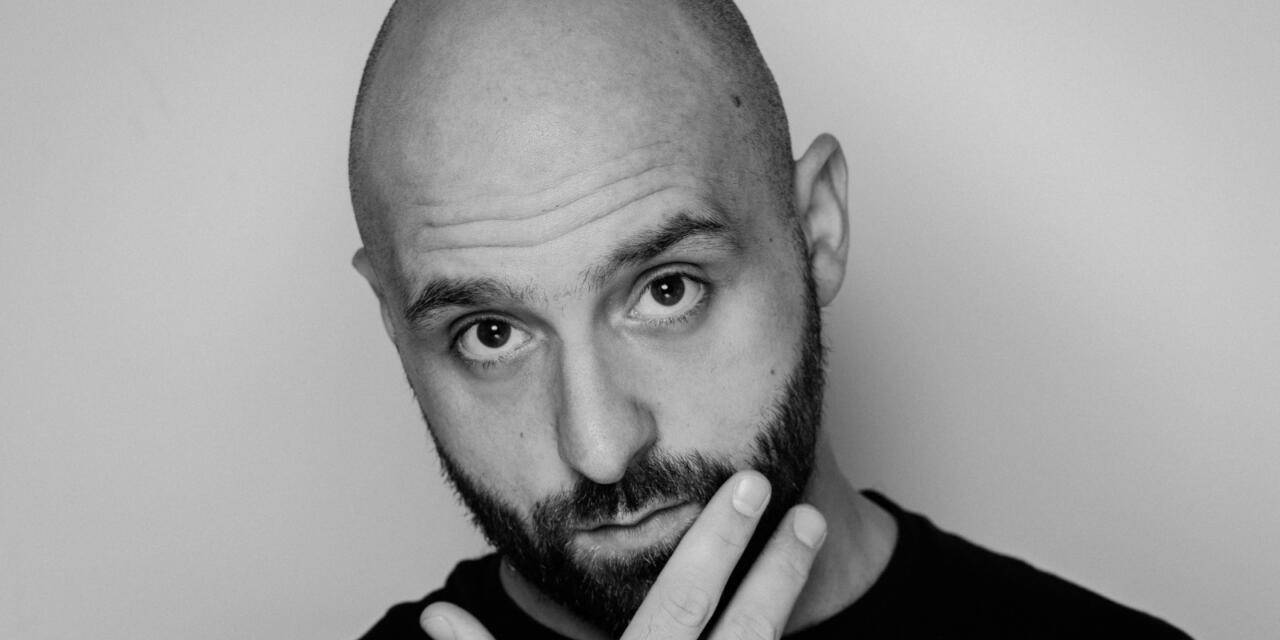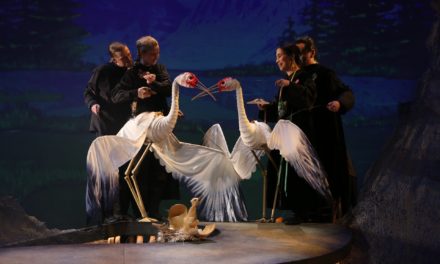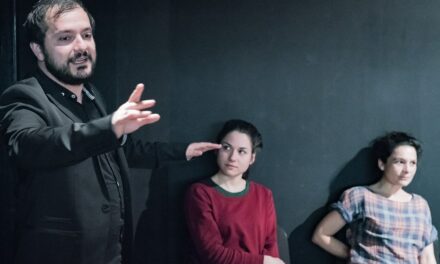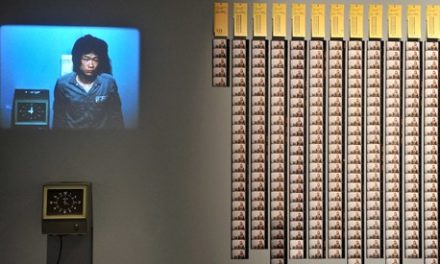Walter Prete is a playwright, author, actor, educator, dramaturg, and director. Born in 1991 in Ruffano, in the province of Lecce, Walter Prete approached the world of theatre as an actor at a very young age. In 2013, he founded the theatre company ALIBI – independent free artists – in Salento with some colleagues. And two years later, the theatre company Essenza in Corigliano d’Otranto (Le). In 2015, within ALIBI, he combines his activity as an actor with that of a playwright with his debut show “Muttura”, which over the years has garnered a large number of prizes and awards. From 2015 to the present day, he has written eleven plays, a work flanked by a personal study of the dramaturgies of the great authors of the Italian and southern Italian tradition and by continuous improvement under the guidance of the most celebrated Argentinean masters of our time. His main awards and recognitions include the final at the Premio Hystrio – scritture di scena 2017 with “MATER” (Alibi teatro and Balletto del Sud production), the Director’s Special Award and the Artistic Residency Award obtained with “SETE” in the 2019 edition of the Premio Nazionale Giovani Realtà del Teatro in Udine. He is the author of RADIODRAMMES (PODCAST): “MATER” – “UNO DI DUE” (with G. D’Aversa and Anna Marra); “PEPPINO vs. DI VITTORIO – Ballata sentimentale per un eroe popolare”, Book: “#39 – For a participatory geography of memory” (with G. D’Aversa) …
Interview
Ivanka Apostolova Baskar: Walter, recently, in June 2023, as part of the regional project The East Side of The Stage initiated by AMA Lecce in partnership with several Balkan countries – theatre and performing arts organizations, you gave a very successful mentoring workshop on playwriting: Overview Effect in Skopje, Macedonia, in collaboration with actor Gustavo D`Aversa; please, share with us more of your experience and conclusions about the participants, the process and their practical reflections/results on the topics of climate change and drama – topics so very actual in the filled of European and international contemporary theatre and performing arts?
Walter Prete: Thank you for the question. The opportunity to lead the Skopje workshop for me was an important moment of confrontation with a very different dramaturgical practice from the one I usually know and handle. The work focused on a topic that I perceive with great urgency: climate change. I believe that the success of the workshop was mainly determined by the fact that the working group comprised people from different educational and professional backgrounds, but all equally willing to engage in dialogue and able to work brilliantly as a team. Even when dealing with such universal topics as climate change, I like to start from something deeply connected with the authors’ sensibilities and build stories that have people at the center. This methodological approach requires great openness and willingness on the part of the writer. One must compromise oneself, abandon the fear of expressing a vision that exposes us to criticism, deeply understand the characters, even when they act as we would never do. Above all, in a collective writing process like the one experienced in Skopje, no one is, to the end, the master of their own story: there are moments when my character interacts with that of my colleague, and in that case, a friction arises in which one of the two will have to rethink their story, will have to try to win or accept to cede something to the other. I think all this is extremely stimulating, because it all depends on the form you decide to give the script, on the authors working together and their ability to confront each other, on the order of the scenes.
Usually, authors are trained to look at their narrative constructions from above, to design and govern them completely. In contrast, this work is microscopic and the characters act within the story amidst a thousand constraints, as in life. And on everything, climate change (or whatever theme you choose to deal with) acts on many levels and on completely different scales. For me, it was an honor and a pleasure to work with such a talented and dialogue-minded group. And I hope that the participants also gained knowledge that they can use in their future.
Ivanka Apostolova Baskar: You as a playwright, you say that your methodological characteristics and influences (in dramatizing) came mostly from Argentinian playwrights. Why, who are they; since when, and how?
Walter Prete: I first encountered Argentinian playwriting in 2010, when (due to a shipping error on the part of the publisher) I received a book by Rafael Spregelburd instead of another book I had ordered. I remember being thunderstruck by reading Spregelburd, it seemed more interesting to me than any other script I had read up to that point, there was a narrative consistency, an extraordinary amount of events and conflicts, the plots were unpredictable and yet mysteriously coherent. From that moment on, I tried to get in touch with the author of those stories (I looked him up on Facebook, and he was always extremely kind, from the very first contact), I looked for other books to read, I studied their mechanisms, graphically reproducing the structure of those works that were so complex, but which I guessed were articulated on the basis of a possible order.
In 2019, I submitted my university thesis in philosophy, dedicated precisely to Spregelburd’s theatre, which in the meantime I had come to know personally. Afterwards, I attended online courses first with Rafael Spregelburd, then with Alejandro Tantanian, and the opportunity to confront myself not only with the teachers, but also with the students participating in the groups was a very enriching moment for me. A couple of days before leaving for Macedonia, I had the opportunity to attend an in-person workshop with Rafael Spregelburd for a week, in Castrovillari, Calabria, at the Primavera dei Teatri festival. I think that was for me the most important experience I have ever participated in, and the fruit of that intense and beautiful work will only come in the future. Although I must confess that I only learned to understand the language of Spregelburd and Tantanian while attending their classes. I have never studied Spanish, so what I practice is a form of dramaturgy deduced, in a way, from misunderstandings and filters that come through my sensitivity and obsessive rereading of their works. More than the notions, in fact, what for me remains the richest teaching I have received is the generosity and humility with which these people approach teaching. There is no attitude of superiority, they are not afraid to completely donate what they know and what they have learned, and above all theatre is taught as something simple, without the gravity that often acts as a brake on the expressive freedom of authors.
Ivanka Apostolova Baskar: What is the significance of the Venice Biennial – Teatro for every Italian and European theater practitioner? If you are selected in their program, what stage career doors open for you afterwards?
Walter Prete: La Biennale di Venezia is primarily an opportunity to look at a vast theatrical panorama: there, one really has the impression of being in a privileged vantage point for observing major global theatrical trends. The most inspiring thing is to be able to spend so much time in close contact with extremely talented people and to be able to witness at firsthand the work of celebrated and much-loved masters. I took part in the Biennale Theatre’s Writing College in 2022, together with eight other playwrights, and from each of them I learned something, because in that context everyone works on their own limits and is encouraged by the others to increase their strengths. In particular, I was lucky to work in the Dramaturgy College under the guidance of Maestro Davide Carnevali, who does an extraordinary personal mentoring job on each student, and this I believe is the best a young author can hope for. Certainly, the most interesting prospects in the short term open up for the two authors selected to present their work at the Biennale the following year (this year it was Stefano Fortin and Carolina Balucani, who presented respectively the mise en lecture of “Cenere” and “Addormentate”: two truly powerful performances, as was clear from the work they started last year). However, I believe that, for all participants, Biennale is an excellent context in which one is noticed and valued and this, sooner or later, certainly brings great opportunities.
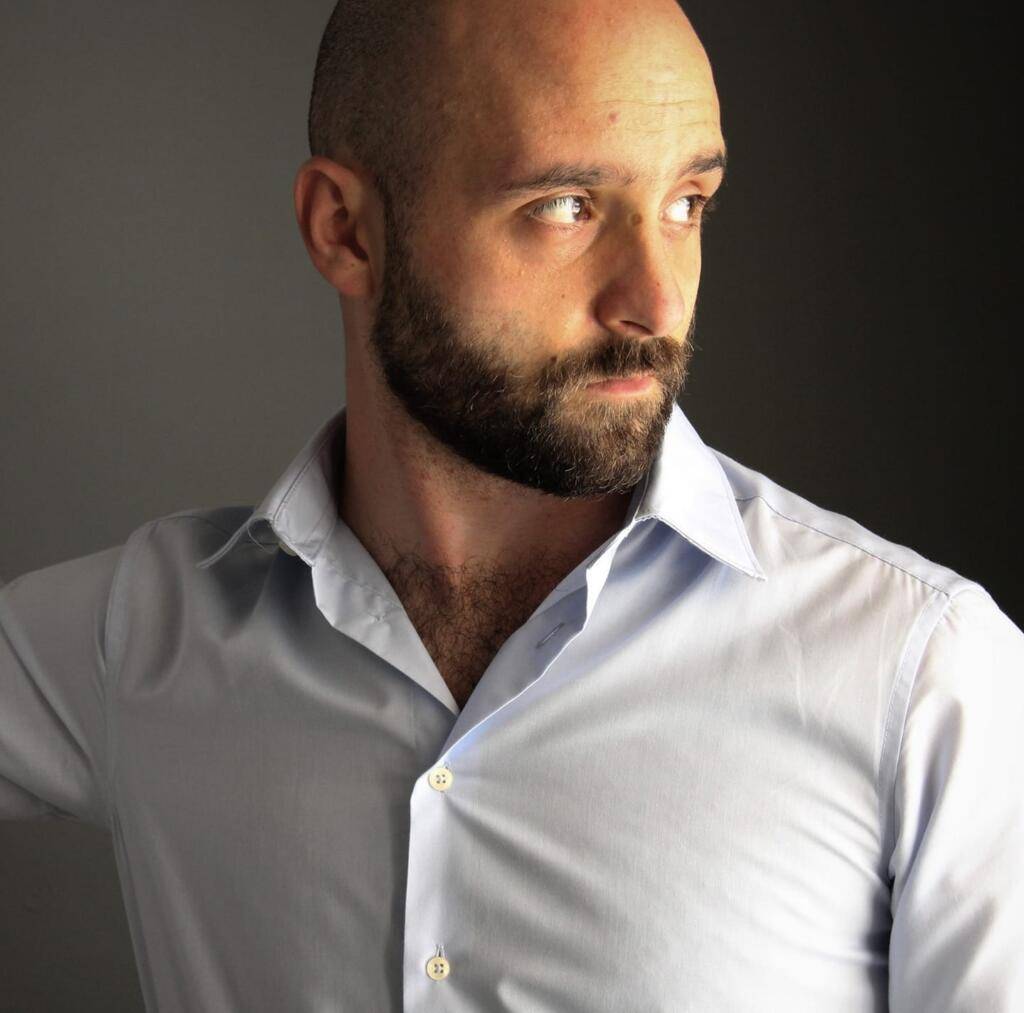
Photo Credits by Walter Prete.
Ivanka Apostolova Baskar: For the global audience-readers of TheTheatreTimes.com, please share with us, what are your favorite dramatic topics that you write, direct for, and create a piece of theatre?
Walter Prete: The themes of my plays are varied, in general, I don’t like to insist too much on the same topics. Certainly, I have written a number of shows with a political theme, others that deal with environmental issues. I believe that the preservation of the planet and the shared care of the people who inhabit it are very valuable topics. But I also happen to write plays that deal with family or emotional relationships instead. At all times, however, all these elements coexist. In fact, I like the characters in a script to be simultaneously immersed in the different planes of reality with which we are all confronted every day, and indeed I find it even more interesting that a character can be at the same time ruthless in work or politics and an affectionate and extraordinarily delicate lover or parent. Let’s say that, more than the themes, the thing I like to work with are the characters.
Ivanka Apostolova Baskar: Walter, share your perspective on the situation in theaters in Southern Italy, especially the Puglia region. What do you notice, what you – objectively and subjectively like or dislike, what is a chance and what is problematic, today?
Walter Prete: Southern Italy is a land that during the last century certainly expressed the most representative playwrights on the Italian scene: Luigi Pirandello in the first part of the century and Eduardo De Filippo (and his entire family galaxy) in the second half. Apulia too, with Carmelo Bene, gave 20th-century theatre one of its highest figures. All this represents a great cultural and artistic heritage for those of us who do theatre in the South, but at the same time tradition risks, at certain times, becoming a dangerous constraint. Today, there are those who consider the repertoire of the great Masters of the past as something unrepresentable, or even embarrassing. Others, on the other hand, are convinced that, that repertoire does not admit of modification or adaptation to our times. I believe that, above all for those who intend to write theatre today, it is necessary to know and practice the great texts of these authors on stage, because this can serve to relocate us precisely in our own dimension, it provides us with coordinates in time and space to understand where we come from, who has been there before us, what meaning our work has in this place. Apulia today produces excellent theatre, especially excellent theatre for children, which I have never done, but which I always go to see with great pleasure by colleagues whom I respect and appreciate very much. I am convinced that the best opportunities arise from the ability to dialogue even if one has different aesthetics, as long as one recognizes the value and rigor of another’s theatre practice.
Ivanka Apostolova Baskar: You work at Alibi Teatro and Association in Tricase, what is important and crucial for your existence, team, repertoire, program, theatre style, and aesthetics?
Walter Prete: I believe that for me and all my friends and colleagues at Alibi, theatre is a way of questioning our world. Alibi is made up of people with extremely different professional and artistic lives and experiences. When we decide to work on a theme that we are passionate about, our differences emerge strongly and this is what nourishes our plays. We necessarily cultivate different points of view: our rehearsals often fade into long discussions that then turn into dinners, phone calls and meetings in and out of the rehearsal room. It might seem like a huge waste of time, but for me this is all part of the creative process. Even when I write alone, at my computer, I am writing for people I know deeply. By now I can imagine what an actor or actress is thinking about a certain subject, I can know in advance how they will say a line, how they will breathe in a monologue, how long it will take them to make a gesture, and all this is important to me. The people I work with, always inspire and surprise me. They add their intelligence and the pleasure of working together to my characters. That is why I write. If I had to say what is essential for Alibi, I would say that the most important thing is the people in it.
Ivanka Apostolova Baskar: Is it difficult today (in these contemporary multi-cross-inter disciplinary times of survival) to live only by creating contemporary theater in Italy and Europe? To live only from writing and setting dramatic texts; how often you are in charge of implementing educational programs (as a balance) with various target students/participants?
Walter Prete: I believe that only a few people can make a living just acting theatre, and even fewer can make a living writing it. But this is not a disadvantage for me. In fact, I believe that dedicating oneself to theatre means embracing this profession fully, without distinction between those who write, those who act, and those who direct. Personally, I happen to work on mounting stage lights, building sets, holding afternoon workshops for non-professional actors. But at all times I know that what I am doing is theatre. I like this job to remain something humble, something tiring, because that is what makes the moment when you go on stage the most fulfilling. I have great respect for those colleagues who spend an entire evening backstage without acting, but to help the actors and to make the show the best it can be. It is difficult to get rich doing theatre, but you can make an honest living doing the many things that are necessary to do theatre. So yes, I teach writing and acting courses, I teach theatre in afternoon classes in schools, sometimes I write projects for the summer playbills of small municipalities in the province. But this is the job of the theatre, and this is what I have chosen to do.
Ivanka Apostolova Baskar: What are the similarities and differences between contemporary theater in the North versus the South of Italy? Sometimes they say that the tendencies of the South are mostly toward the folk theater versus the political theater of the North of Italy?
Walter Prete: I do not believe that the differences between the theatre of northern and southern Italy are differences in content: there are companies from the North that do excellent popular theatre and companies from the South that produce wonderful shows of political commitment, just as the opposite can also happen. The difference, above all, lies in the unequal distribution of richness between northern and southern Italy, which certainly also influences the theatre.
Ivanka Apostolova Baskar: After COVID years of agony, alternating with the unpredictability of climate change; the new global-local wars; the energy crisis… What is your vision for yourself in the world of theater 5 years from now?
Walter Prete: I believe that theatre is a hardy plant that is difficult to knock down, it adapts well to face any crisis. Probably the most difficult thing was to overcome COVID, because it took away from the theatre the most important thing: the audience, a group of people physically present, at the same time and in the same room.
During those years, I was unable to write and I also had great difficulty finding a reason to continue doing theatre. Fortunately, that period has passed and between 2022 and 2023 I have written five new plays, which confirms to me that meeting the public is the most important incentive for those who do this job, or at least it is for me. I cannot tell you who I will be in five years. What I do know is that in the next five years I intend to improve my skills by studying and writing more, I will try to valorize the experiences I have had in this time to be less afraid of making mistakes, of accepting new challenges (often in the past I was afraid of not being enough, but I realized that you can only be enough after you have done something, never before). In general, in my future, in addition to external collaborations that I embrace every time with pleasure, I always see Alibi, which is a creature that has taken shape thanks to the commitment and care of so many people who are dear to me and whom I hope to have at my side for many more years.
Ivanka Apostolova Baskar: Thank you very much, Walter Prete.
This post was written by the author in their personal capacity.The opinions expressed in this article are the author’s own and do not reflect the view of The Theatre Times, their staff or collaborators.
This post was written by Ivanka Apostolova Baskar.
The views expressed here belong to the author and do not necessarily reflect our views and opinions.

